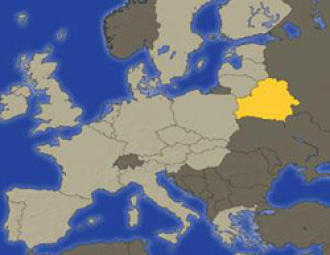Maira Mora: Belarus has already become a part of my life

The head of the European Union’s Delegation to Belarus tells about the conditions for reestablishing full-fledged political dialog with Belarus.
Maira Mora, head of the European Union’s Delegation to Belarus, during the panel discussion on “Belarus-EU relations: déjà vu before the summit of the Eastern Partnership in November in Vilnius”, organized by the Centre for analytical initiatives “Liberal club” reminded Belarusans about “the cornerstone of the progress in relations” between our country and the EU, reports EuroBelarus Information Service.
- I am working in Belarus since 2004. I took a short break when I left the country for one month. Belarus has already become a part of my life. Since 2004 I witnessed certain recurrence in the Belarus-EU relations. And the cornerstone of this “sine curve” is the observance of human rights in Belarus, which is our first and foremost concern and the precondition for any change in today’s politics. The situation with human rights hasn’t improved for a long time; however, we have to say that it hasn’t deteriorated either. We keep an eye on the situation and voice our concern; last time the resolution of the EU Foreign Affairs Council appeared in October. Europe is also concerned with death sentences, as Belarus remains the last country in Europe, where capital punishment is used.
Maira Mora one more time emphasized the adamant stance of the EU:
- Release and rehabilitation of all political prisoners is EU’s political priority. To support the pressure, EU has taken a number of restrictive measures towards certain people and enterprises in Belarus. After December 2010 EU has also enhanced the cooperation with the civil society of Belarus and provided higher volume of help for the NGOs and educational projects. Besides, contacts between people are very important for the EU, and that is why Belarus is a large beneficiary of the regional programs financed by the European Union. European Committee has created a number of programs for Belarus – “Open Europe” program, language courses for young Belarusans, “Bridge” program. We also demonstrated our readiness for the dialog to simplify visa regime with Belarus, which would do well for the Belarusan society. These suggestions were directed as far back as June 2011, but Belarusan side hasn’t answered yet.
What concerns the Dialog on Modernization, Maira Mora states that the EU has used it when contacting with the Belarusan civil society.
- It is a free exchange of opinions about what modern Belarus should look like. The Dialog stimulated interesting ideas in the Belarusan society. We have more than once called upon the Belarusan authorities to start such dialog.
Maira Mora has highlighted that the situation cannot be called “frozen” anymore:
- The relations remain in such half-stopped condition, where the main hindrance is non-observance of the human rights. The situation where in the very centre of Europe, near the EU borders political prisoners still remain is unacceptable for the EU. I believe that when removing this hindrance, political dialog can be re-established and I hope that we’ll have political will for that.
-
03.01
-
07.10
-
22.09
-
17.08
-
12.08
-
30.09








































